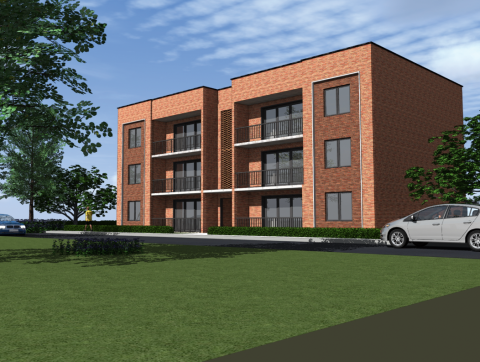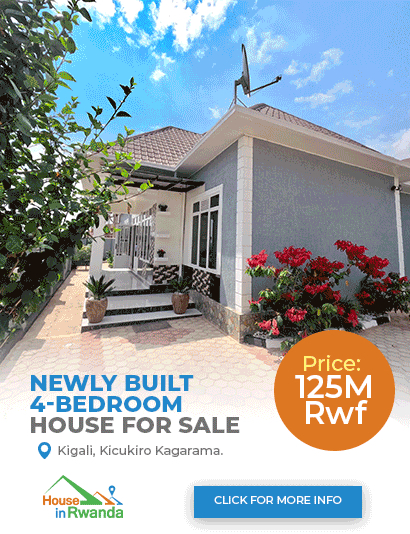
The power of diaspora investors is under-recognised and could act as a catalyst for increasing capital investment into Africa’s affordable housing sector. African migrants are often driven by personal economic incentives (family friends or networks) to guide their investments but are increasingly looking at the growth of African economies and the resulting investment opportunity of their home countries or across the continent. Investment performance is increasingly becoming a key factor.
In the search for new sustainable affordable housing financing models, the African Foundation for Development (AFFORD) has identified the diaspora as a potentially limitless investment source for job creation, profitability and economies of scale.
Diaspora Direct Investment (DDI) presents the opportunity for a stable, more risk-tolerant alternative to Foreign Direct Investment (FDI). It is reported by the World Bank that the African diaspora contributed $37bn in remittances to Sub-Saharan Africa in 2020.
A significant proportion of these remittances are used as DDI, particularly aimed at real estate investments. However, the risk of underperformance or cost overruns remains high in the diaspora real estate sector (with many skeletons of incomplete buildings waiting for completion dotting African landscapes).
In the development of more secure investment products for diaspora investors into the real estate market, AFFORD’s scoping for its pilot housing project in Rwanda, has identified key constraints in the housing value chain. The organisation is now convening forward-thinking companies to resolve these constraints, which will result in reducing the investment risk, thus enhancing retail investment opportunities.
Disrupting the traditional real estate value chain is thus an imperative to unlocking potential, establishing new public/private partnerships and building scalable models for investment.
A key component is innovative construction models that reduce the cost of building through local sourcing of materials and producing savings through economies of scale.
Old problems, new solutions
There also remains a challenge for the Rwandan private sector to adopt new approaches to old problems. New innovations in locally produced building materials and financing (such as the Rwandan government’s mortgage finance facility) are beginning to shine the light on what is possible.
It is within this context that AFFORD approached the problem of creating secure co-investment products to enable the diaspora to join an investment scheme for affordable homes development in Rwanda.
Why Rwanda? In recent years the country has emerged as an innovative location, committed to partnership between the private and public sectors. Government, via the Rwanda High Commission, Ministry of Finance and Capital Markets Authority, has recognised the potential of the Rwandan diaspora to increase alternative (and long-term) investment to support the economic development plans for the country.
According to the Centre for Affordable Housing Finance (CAHF), Rwanda’s housing sector is estimated to directly contribute 9.5% to Rwanda’s GDP of $11 billion. However, the direct impact is limited due to the lack of finance at both ends of the real estate market: investment into affordable housing construction and access to finance for home owners or renters.
The relatively under-developed housing finance sector is a particular concern that could be addressed by organised and pooled diaspora investors. Through pooled investment instruments, it is argued that new competitive sources of finance can be mobilised to contribute to the GDP of the country and to an extent, recalibrate the short-term investment expectations of traditional investors whilst producing long-term benefits for diaspora and progressive institutional investors.
What underpins the new models for investment, and ultimately encourages confidence from diaspora investors, are solutions that meet the challenge of affordability for the mass market of home ownership.
Most of the current residential property construction projects tend to focus on the high end of the market rather than the majority of the population that are under-serviced (households earning $232 to $1,045 per month). This presents an investment opportunity for diaspora investors in home construction that addresses the growing demand, as well as a potential solution to their historical personal interest in building quality homes in their home countries for their immediate and extended families.
Disrupting the traditional real estate value chain and opening up a secure and profitable investment marketplace to large-scale diaspora investors is on the horizon.
AFFORD’s call to action is for the traditional infrastructure and finance sectors to develop structured financial instruments that harness the potential of the diaspora within this game-changing opportunity.
Kenny Washington is Project Leader at African Foundation for Development (AFFORD), an international organisation with a mission “to expand and enhance the contributions Africans in the diaspora make to African development”. AFFORD is launching the Remitplus Diaspora Bond, to finance affordable housing in Rwanda.
Source New African Magazine
-----
For daily real estate updates!
